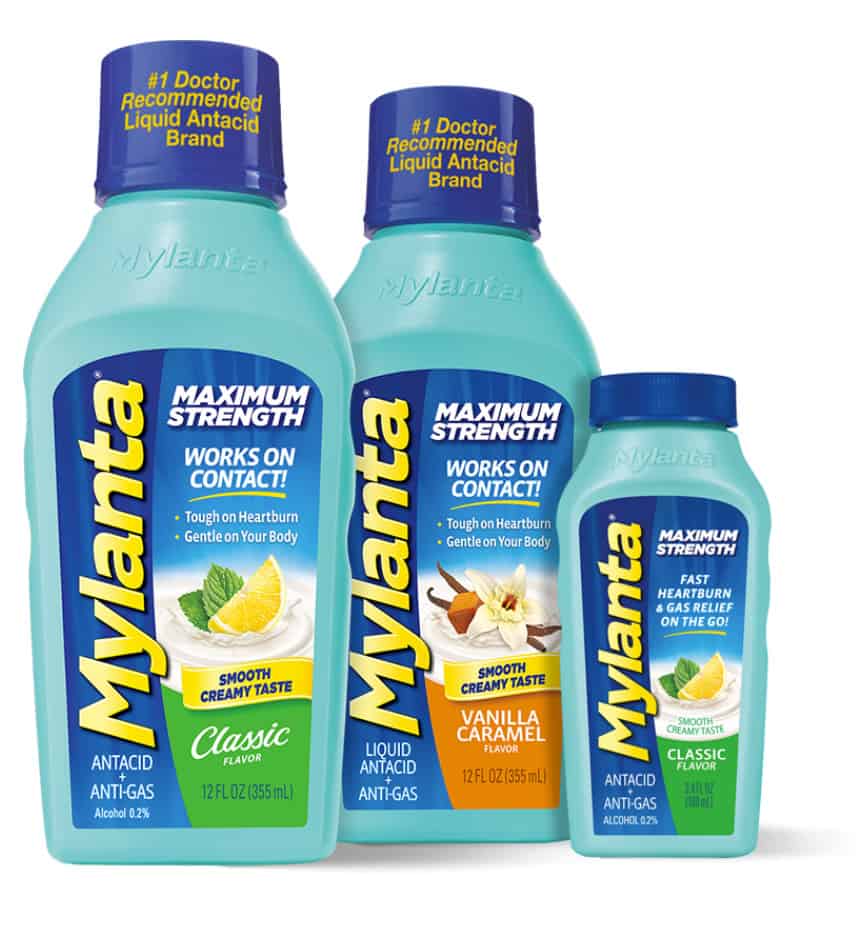Understanding Mylanta Liquid: A Parent’s Friendly Guide
Hey there, super moms and dads! Is your little one struggling with an upset stomach, and you’ve heard Mylanta Liquid might be a comforting remedy? Well, you’ve come to the right place! We’re here to unwrap the essentials of Mylanta Liquid for kids, ensuring you have all the info you need to help your child feel better in no time. So, let’s dive in and explore this minty marvel together!
What is Mylanta Liquid?
Mylanta Liquid is an over-the-counter antacid and anti-gas medication used to alleviate symptoms like heartburn, acid indigestion, and bloating. It contains key ingredients like aluminum hydroxide, magnesium hydroxide, and simethicone that work in harmony to neutralize stomach acid and relieve gas bubbles, making it easier for your kiddo to burp away discomfort.
When Can Kids Take Mylanta Liquid?
Children can experience tummy troubles for various reasons, ranging from dietary choices to stress. Mylanta Liquid can come to the rescue when your child complains of a sour stomach or discomfort after a meal. Always remember, it’s essential to consult your pediatrician before giving your child any medication, including Mylanta, to ensure it’s appropriate and safe for their specific age and health condition.
Proper Dosage and Administration
Getting the right dosage is crucial when it comes to kids and any medicine. If your pediatrician gives the green light for Mylanta, they will provide a dosage based on your child’s age, weight, and the severity of symptoms. Generally, Mylanta liquid is administered using a dosing cup or spoon, and it’s important to follow the dosing instructions carefully. Never exceed the recommended dose—you want to soothe the tummy, not overpower it!
What Parents Should Watch Out For
Every superhero parent needs to be on watch for potential side effects or signs of an allergic reaction. While Mylanta is generally considered safe when used as directed, some children might experience mild side effects. These can include nausea, diarrhea, or constipation. If you notice any unusual symptoms after giving your child Mylanta Liquid, contact your pediatrician right away.
Additionally, be mindful of the fact that Mylanta Liquid is a temporary solution, not a long-term fix. If your child frequently experiences stomach issues or if the symptoms persist, it’s important to consult with your pediatrician to explore underlying causes and more comprehensive treatment options.
Interactions with Other Medications
Just like a well-choreographed dance, medications need to move together without stepping on each other’s toes. Mylanta Liquid can interact with certain prescription drugs by affecting how they are absorbed in your child’s body. Always inform the pediatrician about all the medications and supplements your child is taking to prevent any unwanted medication interactions.
By now, you’re equipped with the basic knowledge on Mylanta Liquid, its uses, dosage, and safety precautions. Always remember, our little ones count on us to make informed decisions on their behalf. It’s with this loving vigilance that you can ensure their tummy troubles are met with the safest and most effective solutions.
But wait, there’s more to learn! In the next section, we’ll discuss how to identify signs that Mylanta Liquid is needed, and share practical tips for preventing common stomach issues in children. Hang tight, and let’s continue this journey to happy tummies and healthy kiddos!

5 Essential Tips for Parents Preparing to Use Mylanta Liquid
When it’s time to give Mylanta Liquid to your child, you want to be well-prepared. Here are five key things every parent should know:
1. Know the Symptoms
Understanding when Mylanta Liquid is necessary involves recognizing the symptoms it’s designed to treat. Keep an eye out for complaints of heartburn, a feeling of fullness in the upper abdomen (particularly after eating), and episodes of gas or bloating. If these symptoms are irregular and mild, Mylanta Liquid might provide your child with quick relief.
2. Temperature Matters
While it isn’t necessary to refrigerate Mylanta Liquid, some parents find that serving it chilled can give an extra soothing effect, especially if your child is dealing with heartburn. However, ensure it’s not too cold, as extreme temperatures can upset the stomach further.
3. Watch the Clock
Timing is critical when administering any medication. Mylanta works best when given between meals and at bedtime, following the dosing instructions from your pediatrician or the product label. This helps to neutralize acid that’s built up and alleviate discomfort when it’s most likely to occur.
4. Consider Dietary Changes
Before relying on Mylanta Liquid, reflect on your child’s diet to identify if certain foods could be the culprit behind their stomach trouble. Foods that are overly acidic, spicy, or fatty can often cause digestive issues. Equip yourself with knowledge about balanced, stomach-friendly meals that can prevent the need for antacids.
5. Know When to Seek Help
If you find that you’re using Mylanta Liquid frequently, it’s a sign that you should seek advice from a pediatrician. Persistent or severe abdominal pain requires professional evaluation. This ensures that any serious conditions aren’t overlooked and that your child receives appropriate care. Also, knowing the signs of an allergic reaction, such as hives, breathing difficulties, or swelling in the face, lips, or tongue, is crucial for immediate medical intervention.
Empowering You to Handle Hiccups and Heartburn
By keeping these facts in mind, you can expertly prepare Mylanta Liquid if and when your child’s stomach decides to be a bit grumbly. Remember, though, that while Mylanta Liquid can be a great help, the ultimate goal is to ensure that these stomach issues don’t become frequent guests in your household. This means adopting preventive measures, emphasizing healthy eating habits, and knowing when to get professional advice.
Armed with this guide and your innate parenting wisdom, you’re all set to provide the comfort and care your child needs during those not-so-fun times. Stay attentive and loving, and your little one’s tummy will surely thank you!
For more great articles please see here. For more information see here
Disclaimer
The articles available via our website provide general information only and we strongly urge readers to exercise caution and conduct their own thorough research and fact-checking. The information presented should not be taken as absolute truth, and, to the maximum extent permitted by law, we will not be held liable for any inaccuracies or errors in the content. It is essential for individuals to independently verify and validate the information before making any decisions or taking any actions based on the articles.




